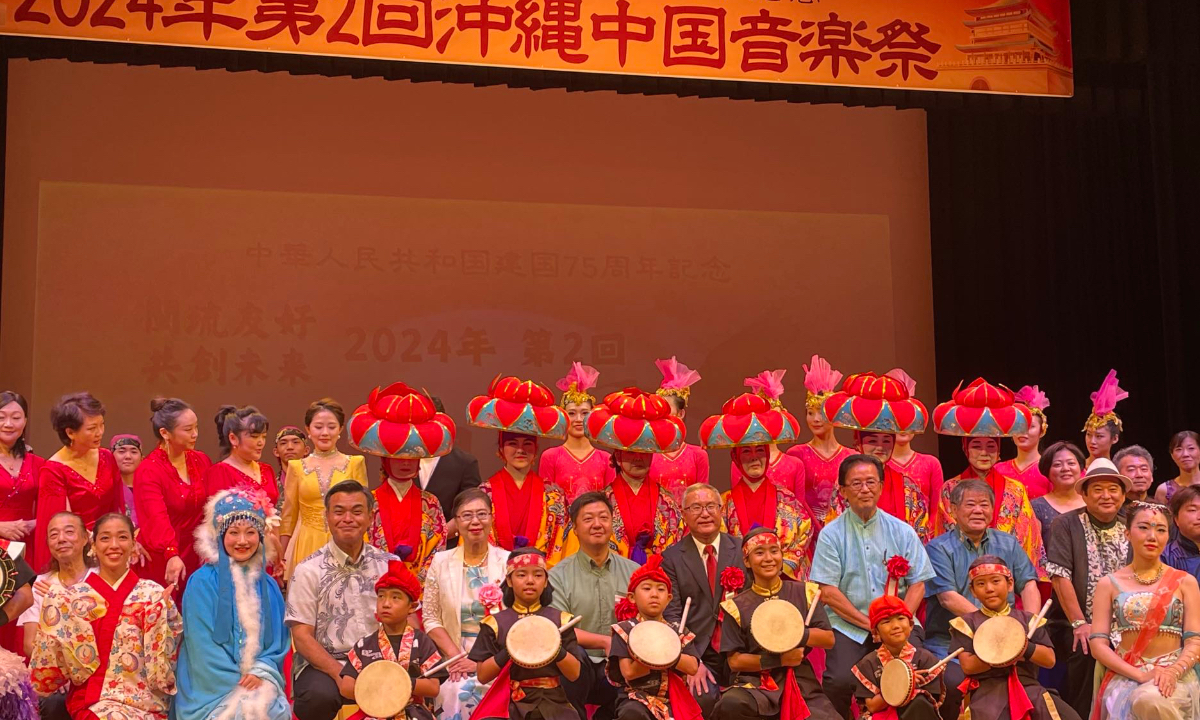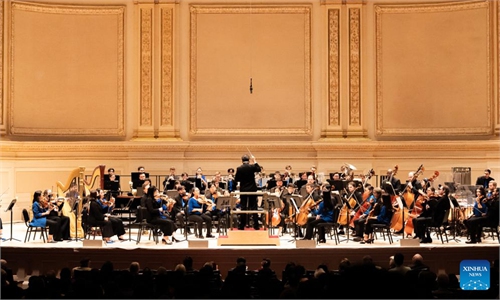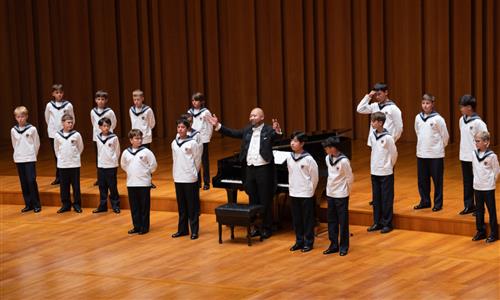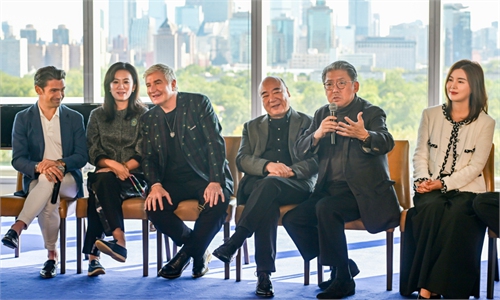ARTS / CULTURE & LEISURE
When horsehead fiddle meets shamisen: 2nd Okinawa China Music Festival kicked off

Photo: Courtesy of the Okinawa Overseas Chinese Association
On Wednesday, the second Okinawa China Music Festival was held in Naha, Japan. The event featured a variety of Chinese traditional cultural performances, such as Sichuan opera, Dunhuang dance, and iconic horsehead fiddle, as well as Okinawan traditional programs including Ryukyu dance, taiko drumming, and shamisen performances.
During an interview with the Global Times, Yang Qingdong, the Chinese Consul General in Fukuoka, praised the festival as a “feast for both eyes and ears,” and an event that plays a significant role in enhancing mutual understanding, promoting cultural development, and fostering closer ties between the hearts of the people.
Yang noted that China has had a long history of interaction with the Okinawa region, referencing symbols of this long-standing relationship, including the 36 families from Min (a group of 36 families originally from East China's Fujian Province who migrated to Ryukyu during the Ming Dynasty), the Shuri Castle, and the Fukushuen Garden.
According to Yang, for 27 years, Fujian and Okinawa have maintained a close relationship, fostering cooperation in areas such as trade, tourism, education, and youth exchanges.
Okinawa Governor Denny Tamaki opened the event with a greeting in Chinese, emphasizing the historical exchanges between Okinawa and China across politics, economics, and culture.
“This year marks the 75th anniversary of the founding of the People’s Republic of China, making this event particularly meaningful as part of broader cultural exchanges between Japan and China,” Tamaki said. “We look forward to continuing to develop these exchanges in the future.”
Shibagun Agarie, president of the Okinawa Overseas Chinese Association, said this year’s festival, following the success of the inaugural event last year, attracted wide attention from its planning stages.
“Music is a language that transcends borders,” Agarie said. “The audience’s response has been incredibly enthusiastic, allowing everyone to experience how music, culture, and art serve as messengers of peace, bringing our hearts closer together. We hope that by hosting the Okinawa China Music Festival, we can further strengthen the friendly relationship between the two sides” he said.
The highlight of the evening was a performance by the Ryukyu Symphony Orchestra, who played “My Motherland and I,” a popular Chinese song.
Violinist Erina Yoshikawa, told the Global Times that “This is our first time participating in the Okinawa China Music Festival, and we are all very excited. We rehearsed extensively for this performance because we love this song.”
Yoshikawa stated that she and her orchestra members noticed the introduction of the performance program on the festival’s promotional poster, and awaited expectantly to watch traditional Chinese cultural performances that they had only seen on TV before.
“The Ryukyu Symphony Orchestra hasn’t had much interaction with foreign artists in the past, so participating in the Okinawa China Music Festival has been a valuable opportunity for us to engage with artists from China,” Yoshikawa said. “By performing Chinese songs, we have gained a deeper understanding of Chinese culture.”
“I had never been to China before, but I hope to use music as a bridge to strengthen the friendly exchanges between China and Okinawa, and I would love to have the opportunity to visit China in the future,” she added.
According to Yang, authentic Chinese culture attracts a large number of dedicated fans worldwide, with many international netizens visiting China to experience its cultural diversity, inclusiveness, and openness firsthand. He also expressed hope that this event would further promote personnel exchanges and practical cooperation between Okinawa and China.



